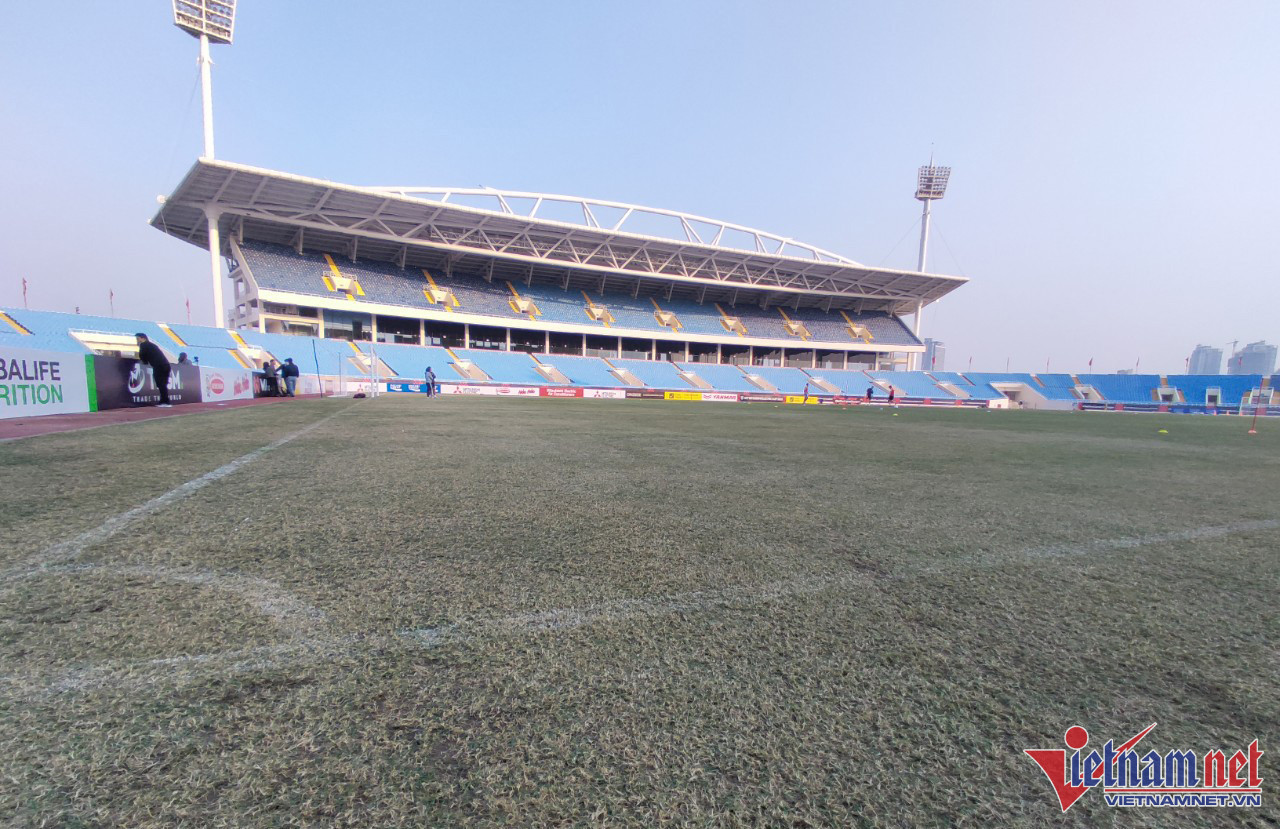
Truong Xuan Cu, a National Assembly deputy, told VietNamNet that a number of cultural works valued at trillions of dong are degrading, including My Dinh National Stadium, because of mismanagement.
“If the Ministry of Culture, Sports and Tourism (MCST) regularly examined and supervised the operation of the stadium, My Dinh’s situation would not be so bad. It owes VND800 billion in tax and its assets have been blocked which makes it impossible to operate and earn money,” Cu said.
He said that problems of My Dinh not only affect the professional quality of football matches, but also harm national fame. The operation of cultural works (stadiums, cinemas, museums…etc) is cumbersome, rigid and heavily reliant on the state budget. In other words, the managers do not seek sources of revenue and cannot sell tickets. As a result, the stadium doesn’t have enough money for upgrading.
“You can see that Hang Day and My Dinh Stadiums are different as night and day. This is an example which shows the difference in management between the private and state sectors,” Cu said.
He thinks that it would be reasonable to allow private investors to manage trillions-dong works, provided that state agencies have regular supervision over the management.
Lawyer Nguyen Duc Manh from Bizlink Law Firm said that it was not a good idea to put valuable cultural works under the management of public non-business units. The serious degradation of My Dinh Stadium at AFF (the ASEAN Football Federation Championship) Cub football matches has harmed the national image.
Many said it was a waste to use My Dinh Stadium only for football matches of national squads every year, and leave it unused the remaining time.
The venue could be used for other cultural events as well, including outdoors music performances, provided that the events do not affect major sports programs.
It would be better to allow private investors to manage the stadium. There should be a policy about management of sports and cultural works to upgrade quality and use.
Manh said that the state just focuses on management. The State needs a good legal framework and should supervise the operation, rather than directly being involved in business activities.
“I think a private-public partnership should manage these public assets,” he said.
Dr Do Duc Dinh, an expert in social sciences, said the deserted Hanoi Museum and My Dinh Stadium are proof of mismanagement. Trillions of dong have been spent on them, but they are used ineffectively.
He believes the problem lies in management. Hanoi Museum and other museums could be better developed with cooperation from the private sector.
The State spends money to build many sports and cultural works and allocates a budget to pay workers and maintenance services. The private sector could effectively manage the works and pay tax to the state, and the state would not have to pay the workers. State money should be used for more essential purposes, such as increasing salaries for state officers and developing important projects.
Bui Thi An, a former National Assembly Deputy, said the "everybody’s business is nobody’s business" attitude exists in most trillion-dong cultural works, and this is the main reason for the degradation of the works.
“The problem is unclear management policy, which explains why no one reports to agencies about the degradation of My Dinh to find timely solutions,” An said.
Luong Bang - Quang Phong